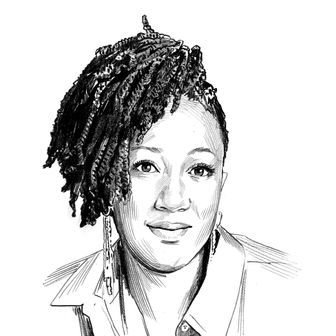
Dear Kimberly,
I have been applying to jobs pretty much nonstop for ten years. I was lucky enough to leave college with a job at a consulting firm, but as a recent grad and millennial hell-bent on following my passion, I left after about a year for a low-paying, six-month internship at a media company (hourly, the equivalent of about $20,000 per year). When that came to an end, I hit the pavement, applying to anywhere that would see me, and (thankfully) landed a job at another media company.
While watching the state of media (read: layoffs) I thought it wise to make a slight pivot and moved to a communications agency. I’ve bounced between a couple of hellish agency experiences, continuously applying to in-house and different roles, and getting “no”s every which way. The number of messages in my outbox titled “Thank you” from interviews is over 100, and I was just rejected from what one might call a dream job that combined not only these mixed experiences but my personal passions as well. I’m just about ready to give up.
I’ve written customized cover letters, I’ve applied with no abandon, I’ve networked, I’ve pleaded. And it’s done nothing to help my chances or nudge me in the direction of finding a career that strikes any balance between paying a liveable wage and not making me want to throw my computer at the wall when I get up in the morning. I know this is a privileged position to be in. When it comes down to it, I have a job, but is the slightest amount of balance ever achievable? What does it take to get there? Are we all just destined for some form of misery until we begin service as octogenarian Starbucks baristas (I’ve given up hope of retiring at this point)?
Yes. Having balance in your career is possible.
Yes. Retiring can be an option for you.
Yes. You can move into a job that excites you.
But you must believe that these goals are possible to achieve. If you keep thinking that retirement, a fulfilling job, and work-life balance are beyond your reach, you will continue to attract and participate in work environments that reflect those thoughts. I sympathize with your experience because no one wants to wake up every day and fantasize about throwing their computer at the wall. I remember days when I was agitated about a job and had to gather all of my strength and will to simply turn on my laptop, then frequently whispered, “Why am I here?” while staring at the ceiling. That dissatisfaction was the sign I needed to create a career strategy that would support my next move.
A friend of mine, Brittney Oliver, detailed her experience of going on over 100 job interviews in eight months when she was unemployed. The experience she described was soul crushing, but it taught her to be resilient, leverage her transferable skills, and expand her network. Even though you’re currently employed, you write that you’ve also been on more than 100 interviews — how far have you progressed in each job-application process? If you haven’t been getting many phone screens or initial interviews, there may be a problem with your application materials or network, or else the roles you’re applying for aren’t aligned with your experience level. If you’ve been getting phone screens but not moving on to first- or second-round interviews, there’s likely a problem with your ability to communicate the value you’d bring to the role. The volume of applications you’ve submitted or interviews you’ve completed doesn’t matter if your experience wasn’t aligned with those opportunities, so ask yourself:
- Have you been applying to jobs that will leverage your strengths?
- Have you built strong relationships with key stakeholders who can advocate for your next career move?
- Have you spent enough time in the roles you’ve held to showcase your ability to master key skills or projects?
When you’re unhappy at your current company, it’s tempting to apply to any job that may provide you with a better work environment. But it’s key that you focus your efforts on open roles that actually maximize your strengths. Review your past work experiences and make a list of the tasks you’ve completed and skills you’ve acquired that you enjoy, that come easy to you, and/or that your peers ask you for help with; these are your strengths. And remember that relationships are still everything when you’re in the midst of a job search. Based on your letter, it sounds like you may not have a sponsor, or a professional who has the power and influence to vouch for your strengths and move the needle on your candidacy. Make sure you’re working on cultivating those relationships as well.
It’s unclear from your letter just how many jobs you’ve held in the last ten years and for how long, but if you’ve pivoted frequently, that could also be holding you back as a candidate. The time you’ve spent in a role showcases your ability to master all of the tasks, projects, and milestones associated with it. For that reason, employers generally like to see that an applicant stayed in a job for one to two years — or even longer if the role was senior level — before moving on.
You’ve also mentioned working in a few toxic workplaces that don’t value work-life balance. You can make sure the past doesn’t repeat itself by speaking with professionals currently working at the companies you’re interviewing with to get a sense of their culture. Ideally, you want to hear this information from employees who are not interviewing you — just as you put your best foot forward in the interview process, the interviewer is doing the same and may not be totally honest about their experiences.
Now you can hit the reset button on your job search. Take stock of past interviews where you’ve progressed the farthest, reflect on which actions contributed to that success, and double down on those strengths moving forward. Having the career you want is possible. Your journey to that “dream job” may just take a little longer than you expected.
Career and leadership-development expert Kimberly Brown helps readers make sure their next move is the best move. Listen to the Your Next Move podcast here and keep up with Kimberly on her website.





